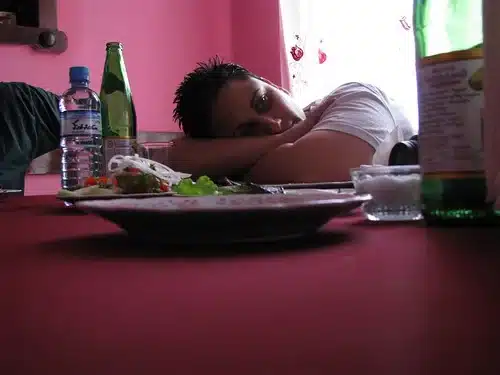For English review, please scroll down.
זהו הספר השלישי שאני קוראת של סופר מופלא. על האושר של קריאת סופר מעולה נוסף גם התענוג שבקריאת עבודת התרגום מצוינת. עבודת תרגום היא אמנות בפני עצמה. לפעמים בחירת המתרגם קובעת את גורלו של הספר, כאשר מתרגם מצויין שומר את הקול והסיגנון של הסופר. במקרה הזה, אני אוהבת את השילוב בין גרהם נורטון כסופר ושי סנדיק כמתרגם.
"סוף מעגל" הוא סיפור של השלמה עם זהות אישית, עוולות חברתיות, חרטה וסליחה. הוא נפרש על פני שלושה עשורים והוא מצייר את את השינוי הטקטוני בתפיסת להטב"ק בעיניי האדם עצמו וחשוב יותר בחברה האירית.
בעיירה אירית נידחת, קבוצת בני תשחורת יוצאים לחגוג את מסיבת הרווקים/ רווקות לזוג המאושר. תאונת דרכים טראגית בדרך חזרה מהמסיבה, קוטעת את החגיגות: שלושה מהם נהרגו בינהם החתן והכלה, ושלושה ניצלו. בין הניצולים הנהג, קונור. התאונה שולחת את קונור, לחיים של נדודים וחיפוש עצמי.
משפחתו נשארת בעיירה, ומתבוססת ביסורי מצפון כפולים: מחד, בנם אשם בתאונה קשה שבה קיפחו את חייהם נערים ונערות ואחת נפצעה באורח קשה מאוד. מאידך, הם איבדו את בנם שנאלץ לצאת לגלות בעיר הגדולה ליברפול.
בתנועות מדודות וזהירות בין עבר להווה, הקורא לומד על האופן שבו השפיעה התאונה הטראגית על חייהם של כל כך הרבה אנשים:
קונור, הנהג שנאשם בהריגה, יוצא למסע נדודים בין ערי העולם. בדרכו הוא מגלה את הזהות המינית שלו ומשוחרר מעול העיירה והוריו. הוא חופשי לחקור את הזהות שלו, הוא חופשי מהעבר שלו.
קונור, מחליט לנתק את הקשר עם משפחתו ובמהלך כמעט שלושה עשורים לא יוצר איתם קשר למעט גלויה אחת שאינה מרחיבה במילים. לאורך השנים, הוא מקפיד לשמור בסוד את נסיבות חייו שהובילו אותו הרחק מביתו וממולדתו, עד שלאחר שלושה עשורים באופן אקראי העבר חוזר לדפוק על דלתו.
אחותו, שלאחר הטרגדיה הנוראית מודאגת ביחס לסיכוייה להינשא, נישאת לבן של הרופא ומגלה שיש קטסטרופות גדולות יותר מהעובדה שאחיך נאשם בהרג בשוגג.
הוריו של קונור, דועכים לתוך שיגרה שבהם הם מנסים לשקם את העסק שלהם שהתרוקן מבליינים.
הסופר מתאר גם גורלן של דמויות אחרות בסיפור. ובמיוחד את גורלן של הדמויות שמבחינתו משמעותיות להעברת המסר.
וכך תוך תנועה ברחבי הזמן וברחבי העולם, הקורא מעצב את תמונת המציאות של הדמויות ובמילים מעטות היא מכוערת.
הסופר מצביע על העדר ערבות הדדית. על האופן שבו הקהילה יכלה לתמוך בהורים המסכנים ובמקום זאת מתייחסים להורים המסכנים כמצורעים. במקרה שלהם אפשר לחשוב שמדובר בתוצאה של התאונה הטראגית. אם כי גם במקרה שלהם מדובר בסוג של התאכזרות, כאשר התושבים מנדים אותם, לא נכנסים לפאב שלהם וכופים עליהם חיים של ניתוק ובידוד קהילתי. בניגוד לקונור, הם לא בחרו בכך.
האופן שבו מתגלגל קונור לרחוב ולחיים בשוליי החברה, והאופן שבו אחותו משלמת מחיר לאורך השנים, מלמדים על העוולות החברתיות הסמויות מעין. החיים של שניהם הם תוצר של דעות קדומות וחשוכות. חיים של הדרה ודחיקה אל שולי הקיום תוך ביטול העצמי. זה לא קשור רק לקהילה הלהטב"קית. זה קשור לכל אוכלוסייה מוחלשת.
הסופר לא מנצל את את סיפור חייו של קונור יותר מהנדרש, ולא מייצר דרמות מיותרות. הוא גם לא טורח לזעזע את הקורא באפשרויות הקשות שמגלמים החיים כלהטב"ק בשולי החברה. בכלל, בייחס לחיים של אחותו, סיפור חייו של קונור הצטייר לי כלא כל כך איום ונורא.
יחד עם זאת, התיאור של קונור כעזובי, שלא משתחרר מהעזוביות שלו גם בגיל 44 מספיק בכדי להדגיש את האמירה הקשה של הסופר על העוולות החברתיות ביחס לקהילת הגאים. עוולות שמאפשרות לנצל אותם, ואף לדחוק אותם לשוליים.
אהבתי את הספר. אני חושבת שגרהם נורטון הוא אחד הסופרים המבטיחים והמוכשרים שקראתי. נכון, בעלילה ישנם כל מיני חורים בלתי מוסברים, אבל כמו בכל פרוזה אחרת, גם בזו הראליסטית של נורטון, נדרשת השעיית ספק.
אין לי ספק שאת הספר הבא שלו שיתרגמו גם אקרא.
סוף מעגל/ גרהם נורטון
ניר אריה , מודן, 2023, 302 עמודים
דירוג SIVI –
איכות אודיו –

This is the third book I have read by an excellent writer. Added to the happiness of reading a wonderful author is the pleasure of reading an excellent translation work. Translation work is an art, and a good translator can preserve the author's voice and style. Sometimes, the choice of the translator determines the fate of the book. In this case, I like the combination of Graham Norton as a writer and Shay Sandik as a translator.
"Home Stretch" is about coming to terms with personal identity, social injustices, regret, and forgiveness. It spans three decades and depicts the tectonic change in the perception of LGBTQ in the eyes of the person himself and, more importantly, in Irish society.
In a remote Irish town, a group of young embark on a celebration for the bachelor/bachelorette party. However, their joy is short-lived as a tragic car accident on the way back from the party claims the lives of three, including the bride and groom. The survivors, including the driver, Connor, are left to grapple with the emotional aftermath of the loss, each dealing with their grief in their own way. This life-altering event sets Connor on a journey of self-discovery as he seeks to make sense of the tragedy.
His family, firmly rooted in the town, is engulfed in a profound emotional conflict: their son, responsible for a tragic accident that claimed lives and left one severely injured, and their son, now lost to them, forced into exile in the bustling city of Liverpool.
In measured and careful movements between past and present, the reader learns about how the tragic accident affected the lives of so many people:
Connor, the driver accused of their death, embarks on a transformative journey between the cities of the world. On his way, he discovers his sexual identity and liberates himself from the burden of the town and his parents. He is free to explore his identity and be liberated from his past.
Connor decides to sever contact with his family, which will cast a shadow over his life for the next thirty years. He maintains a distant relationship, with only a single postcard sent, devoid of any meaningful words. Over the years, he shrouds the circumstances of his life, the reasons that led him away from his home and homeland, in mystery. But after three decades, the past unexpectedly resurfaces, knocking on his door again.
His sister, who, after the tragedy, is worried about her chances of getting married, marries the doctor's son and discovers that there are more enormous catastrophes than the fact that your brother is accused of involuntary manslaughter.
Connor's parents fade into a routine, trying to restore their business.
The writer also describes the fate of other characters in the story, especially the fate of the characters who are significant for conveying the message.
So, while moving through time and the world, the reader shapes the image of the character's reality, and in a few words, it isn't lovely.
The author highlights the absence of mutual support for poor parents within the community, illustrating how they are treated like outcasts. The town's response to them, especially following a tragic accident, is harsh and unkind. The community only worsens their difficult situation by expelling them, banning the pub they own, and isolating them from everyone else.
Connor finds his way and eventually does not descend into street life. Still, his struggle endured by his sister's struggle to maintain a semblance of everyday life. They both highlight the lasting effects of hidden social injustices. Their experiences reflect the consequences of prejudice and societal bias, leading to a life of exclusion and marginalization. This narrative extends beyond the LGBTQ community; it addresses the persistent impact of social injustices on all disadvantaged populations.
The author exercises admirable restraint in narrating Connor's life. He avoids unnecessary drama and refrains from shocking the reader with the myriad of complex possibilities that life as an LGBT person on the fringes of society entails. Connor's life story is presented with the same care as his sister's.
At the same time, the portrayal of Connor as a derelict, still mired in desolation at the age of 44, serves as a powerful statement on the prevalent social injustices within the gay community. These injustices not only enable exploitation but also contribute to the marginalization of individuals.
I loved the book. Graham Norton is among the most promising and talented writers I've read. True, there are all kinds of unexplained holes in the plot, but as in any other prose, even in Norton's realistic one, the suspension of doubt is required.
I eagerly await his next translated book, anticipating another thought-provoking and emotionally resonant narrative.
לגלות עוד מהאתר Sivi's Books
Subscribe to get the latest posts sent to your email.

